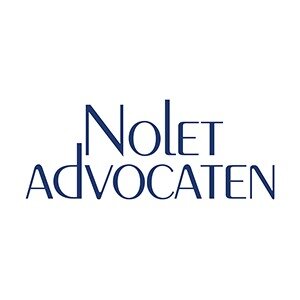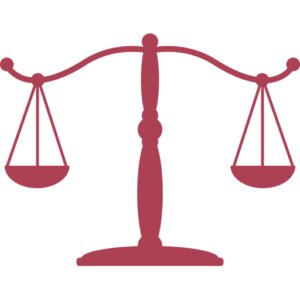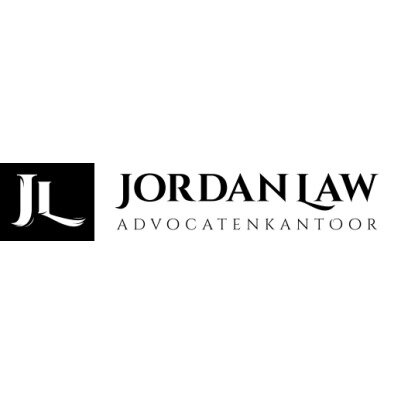Best State, Local, and Municipal Law Lawyers in Netherlands
Share your needs with us, get contacted by law firms.
Free. Takes 2 min.
Or refine your search by selecting a city:
List of the best lawyers in Netherlands
About State, Local, and Municipal Law in the Netherlands
State, Local, and Municipal Law in the Netherlands is a comprehensive area of law that governs the responsibilities and operations of public authorities at different levels, including provinces, municipalities, and local agencies. These laws are designed to ensure structured governance, public order, and service delivery to citizens. The legal framework is largely derived from the Dutch Constitution, various statutes, and governmental policies. It covers topics such as administrative decisions, zoning, public service obligations, and local governance regulations.
Why You May Need a Lawyer
There are several situations where individuals or businesses might require legal assistance in the realm of State, Local, and Municipal Law in the Netherlands:
- Property and Zoning Issues: If you are buying property or altering the use of land, understanding zoning regulations and obtaining necessary permits is crucial.
- Local Government Disputes: Conflicts may arise involving local authority decisions, such as planning permissions, public nuisance, or taxation matters.
- Licensing and Regulation: Businesses often need advice on complying with local regulations, obtaining licenses, or navigating public tenders.
- Public Participation: Individuals or groups may wish to challenge administrative decisions or partake in public participation processes.
- Regulatory Compliance: Ensuring that activities comply with local laws can prevent legal conflicts and financial penalties.
Local Laws Overview
The Netherlands is divided into different municipalities, each with its own set of local regulations. Key aspects of local laws include:
- Zoning and Land Use: Regulations govern land usage and building activities to maintain sustainable urban and rural development.
- Public Order and Safety: Local ordinances may address public spaces, noise control, and events to ensure community safety and orderliness.
- Environmental Regulations: These laws focus on waste management, air quality, and sustainable development practices.
- Social Services: Municipal laws often define eligibility and the delivery of social services and welfare programs.
- Local Taxes and Levies: Such as property taxes or business-related levies, which fund local government activities.
Frequently Asked Questions
1. What is the role of municipalities in the Netherlands?
Municipalities are responsible for various public services, including infrastructure maintenance, education, and social services. They have regulatory powers to ensure local law and order.
2. How are local regulations enforced?
Local regulations are enforced by municipal authorities through inspections, fines, and other administrative measures to ensure compliance.
3. Can I appeal a municipal decision?
Yes, individuals can appeal decisions made by municipal authorities. This often involves administrative legal procedures and may require legal assistance.
4. What is zoning law?
Zoning laws dictate how land within certain areas can be used. They are designed to ensure that development is orderly and suitable for local needs.
5. How do I obtain a local business license?
A business license can usually be obtained from your local municipal office, which may involve an application process and meeting specific legal requirements.
6. Are there any resources for understanding local tax obligations?
Your local tax office can provide detailed information about tax obligations and related guidelines.
7. How are public transportation issues handled?
Public transportation in the Netherlands is managed at a regional level, with municipalities often coordinating routes, schedules, and service standards.
8. What should I do if I receive a penalty notice?
If you receive a penalty notice, it is essential to understand the reason for the penalty and to check whether it is justified. You might need to challenge it legally if you disagree.
9. How do municipal elections work?
Municipal elections are held every four years, allowing citizens to vote for council members who make key local decisions.
10. Where can I find information on social services?
Information about social services is usually available at your local municipal office or their official website.
Additional Resources
For further assistance and information, consider referring to the following resources:
- Association of Netherlands Municipalities (VNG): Offers support and information to municipalities.
- Local Municipal Offices: Provide a wealth of localized data and support services.
- Legal Aid Offices: Can offer free or affordable legal assistance to those in need.
- Ministry of the Interior and Kingdom Relations: Offers overarching guidelines and regulations.
- Regulatory Websites: Such as Overheid.nl, for up-to-date legal texts and governmental policies.
Next Steps
If you require legal assistance in the field of State, Local, and Municipal Law in the Netherlands, consider taking these steps:
- Identify the specific legal issue or query you have.
- Collect any relevant documents or evidence related to your case or query.
- Research and possibly contact a law firm specializing in municipal law, or seek recommendations.
- Consult with a lawyer to discuss the specifics of your situation and receive tailored advice.
- Act on the guidance given, whether that involves pursuing legal action, negotiating with authorities, or adhering to legal procedures.
Lawzana helps you find the best lawyers and law firms in Netherlands through a curated and pre-screened list of qualified legal professionals. Our platform offers rankings and detailed profiles of attorneys and law firms, allowing you to compare based on practice areas, including State, Local, and Municipal Law, experience, and client feedback.
Each profile includes a description of the firm's areas of practice, client reviews, team members and partners, year of establishment, spoken languages, office locations, contact information, social media presence, and any published articles or resources. Most firms on our platform speak English and are experienced in both local and international legal matters.
Get a quote from top-rated law firms in Netherlands — quickly, securely, and without unnecessary hassle.
Disclaimer:
The information provided on this page is for general informational purposes only and does not constitute legal advice. While we strive to ensure the accuracy and relevance of the content, legal information may change over time, and interpretations of the law can vary. You should always consult with a qualified legal professional for advice specific to your situation.
We disclaim all liability for actions taken or not taken based on the content of this page. If you believe any information is incorrect or outdated, please contact us, and we will review and update it where appropriate.
Browse state, local, and municipal law law firms by city in Netherlands
Refine your search by selecting a city.
















